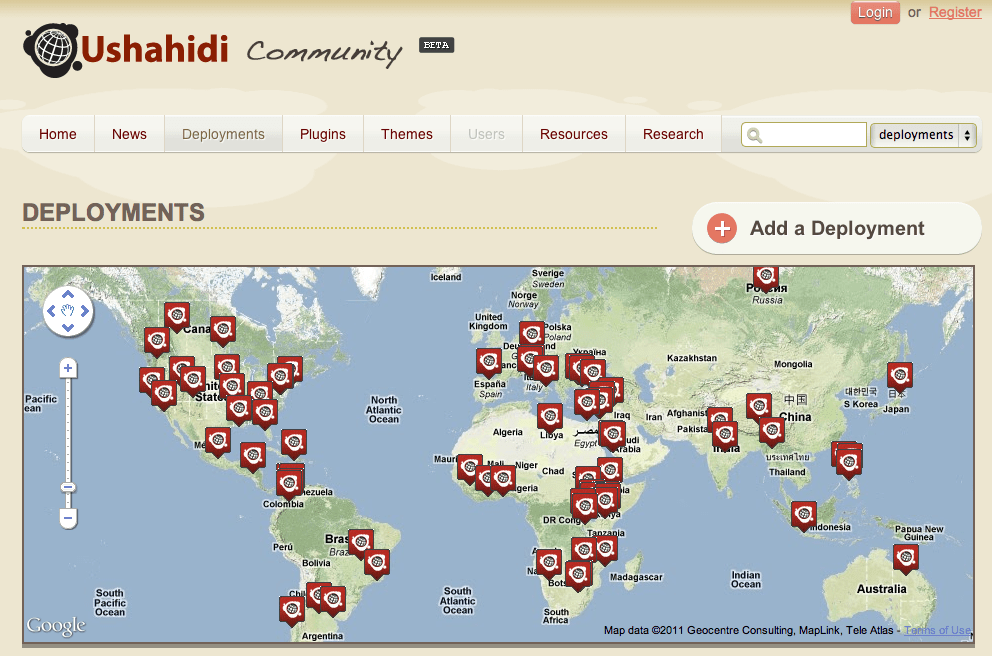advertisement
Ushahidi issues final statement on alleged sexual harassment
In the recent past, Ushahidi, a non-profit software company that develops free and open-source software for information collection, visualisation, and…

In the recent past, Ushahidi, a non-profit software company that develops free and open-source software for information collection, visualisation, and interactive mapping has been in the interwebs for all the wrong reasons, following an earlier claim of the Board of Directors mismanaging a sexual harassment allegation. In an article filed by CIO East Africa on Saturday 15th July 2017, The allegations surfaced a week ago and the Ushahidi Board, through one of the Board members, Juliana Rotich, then released a hastily prepared and unsigned statement informing the tech community of an ongoing internal investigation into the matter and later confirming that the CEO had been sent on a compulsory leave paving the way for investigation.
As at Saturday, a team of five members (committee) from the Kenya Technology Entrepreneur group led by Ali Hussein, the CEO of Hussein and Associates, was tasked to mediate between the Ushahidi Board of directors, the Ushahidi CEO, and the affected lady who has since resigned from Ushahidi.
However, the team did not get a formal response from the Ushahidi Board then. With the pressure still mounting and masses demanding for answers from what has been considered as a shining example of the social enterprise, The Board has since issued an update on the inquiry into the allegations.
advertisement
Here is the latest Update from the board:
On Sunday, July 16th, the Board received from its lawyers a legal opinion on the investigation of a sexual harassment complaint that was filed by one of our employees, who has since left the organization, against a senior employee. Following the review of the opinion and the completion of the Report, the Board has communicated its findings to all parties involved.
We expect to conclude our process in the coming days, in accordance with the Employment Act in Kenya and international employment law. In the interim, the Board has placed the Respondent on suspension.
advertisement
We wish to state that Ushahidi’s Board followed due process in accordance with the law, in respect of all parties’ legal rights as well as Ushahidi’s internal sexual harassment policies and procedures. This was in order to ensure that all parties were treated fairly, their rights protected, and confidentiality upheld throughout the inquiry.
Further, the inquiry was conducted professionally, impartially and in good faith in a bid to establish the facts and not to victimise any party or influence the outcome.
In addition, the resolution of the complaint was a legal process requiring consideration of the evidence, Ushahidi’s policies and procedures, and the applicable laws across two jurisdictions (the US and Kenya).
advertisement
As such, the matter has required engagement and coordination of legal counsel for the organization, the Complainant, and the Respondent. The complexity of the issue and number of parties involved has led to a prolonged process. In order to provide further clarity and in the interest of the transparency Ushahidi stands for, we are including a chronology of the matter.
We wish to reiterate that the Board supports a safe and respectful work environment. Ushahidi does not and will not condone any form of sexual harassment.
Ushahidi was founded in 2007, following the aftermath of Kenya’s disputed presidential election that collected eyewitness reports of violence sent in by email and text-message and placed them on a Google map.
The Kenyan site was developed and run by several bloggers and software developers, all current or former residents of Kenya. They include Erik Hersman, Juliana Rotich, Ory Okolloh, and David Kobia. An analysis by Harvard’s Kennedy School of Government found that Ushahidi was better overall at reporting acts of violence as they began. The data collected by Ushahidi was superior to that reported by the mainstream media in Kenya at the time. The service was also better at reporting non-fatal violence as well as information coming in from rural areas.
Ushahidi software has since been used to create a similar site to track anti-immigrant violence in South Africa.The software was also used to map violence in eastern Congo, to track pharmacy stockouts in several Southeast African countries and to monitor elections in Mexico and India. It was also used by Al Jazeera to collect eyewitness reports during the 2008–09 Gaza War.
With most of its revenue generated from grants and donations, Ushahidi’s sustainability could be affected as well-wishers start asking hard questions and possibly pulling out their funding.